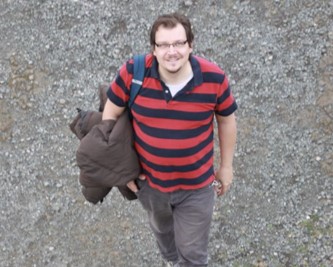
Commissioning in Sodegaura: Vincent Verbaere travelling in Japan
After completing my PhD in heat and mass transfer about ten years ago, I joined Doosan Lentjes. There I had a variety of tasks: I spent the first four years in Research & Development (R&D) designing test facilities of fluidised beds. Since then, I have been working in process engineering, where I spend a lot of my time developing calculation programs.
Some time ago, I wanted to spend more time on construction sites. This is in line with gaining insights into the practice. For me, it was the first real experience on a distant construction site in Sodegaura (Japan), where a 70MWe CFB (circulating fluidised bed) plant is currently being commissioned. Together with my colleague Frank Leuschke, CFB Product Manager at Doosan Lentjes, I was deployed there for about three months between November 2022 and February 2023.
My function on site was to provide technical support to the customer and to evaluate the measurement data from the commissioning. This activity requires an intensive exchange with the customer, as well as with our colleagues in Ratingen and Korea.
An important part of my job as a process engineer is the qualitative and quantitative evaluation of process data. During commissioning it happens that measured data show a certain difference to the design data. It is important for all partners in the project to understand where the root of the discrepancy lies. What measures need to be taken to avoid it in the future? This task requires a certain degree of scientific curiosity. Sound knowledge of thermodynamics as well as programming certainly offer a great advantage.
It was my first long stay in faraway Asia. Beforehand, I had prepared myself a bit by reading a few books about Japan. In retrospect, I realised that I had travelled to Japan with a lot of unawareness. I used the three months well to reset my compass.
I won’t go into the history of Japan here. Nevertheless, it is important to know: Japan was closed off from the world for several centuries (Edo period). During this time, samurai, among others, shaped the country. You have to imagine samurai as a mixture of knights and monks. The Japanese word “samurai” means one who serves. Their way of life was characterised by harsh customs as well as deprivation. These Japanese warriors follow the Bushido code of honour. The Bushido code is based on seven main principles. Bushido or “the way of the warrior” is very present in Japanese society, sports, traditions, etc.
Modern Japan continues to apply its strong sense of honour, discipline, dedication and loyalty to a common cause: to rebuild itself and become one of the world’s greatest economic and industrial powers in the 20th century. Hierarchy is known to play an important role in this. Not only is a certain degree of “submission” expected from everyone. It is also very important to speak during meetings only when contacts give the signal.
I have noticed that Japanese people often know our culture much better than we Europeans know the Japanese culture. Many Japanese have already travelled to us for business or pleasure. I was surprised when an engineer once asked me questions about the French school system (because I am a native Frenchman) and I realised that he was very well informed in advance.
Japanese are very caring people. In connection with the Corona pandemic, people still wear medical masks, although the government has cancelled most of the measures. In public transport, Japanese people mostly stay quiet: people hardly talk to each other, or avoid talking loudly to each other.
Personally, I felt very well received in Japan. When I joined a group of Japanese, someone always tried to explain to me in English what it was about. However, one must not forget: Japanese is the language of Japan and so an exposure to the language is quite appropriate when looking at a long stay. The difficulty here is learning the three alphabets used, namely hiragana and katakana, each with 46 characters, and kanji, based on Chinese characters. It is assumed that knowledge of 8000 characters is necessary to understand a magazine. It may seem surprising, but Chinese characters seem easier to learn because they are easier to distinguish.
Cleanliness in Japan is also known by many. Before entering a room, even if it is a technical room, office or waiting room, you should leave your shoes at the entrance. It is not always practical if you regularly travel between the office and the plant. However, the conditions at the workplace are to be welcomed. The facility is remarkably clean. For example, after every pipe modification, the affected area is repainted. If any leakage occurs over a short period of time, then a cleaning company is immediately deployed.
In conclusion, this trip was certainly very intense in terms of workload, but it allowed me to discover a country and incredibly interesting people. I will not forget this experience so quickly.